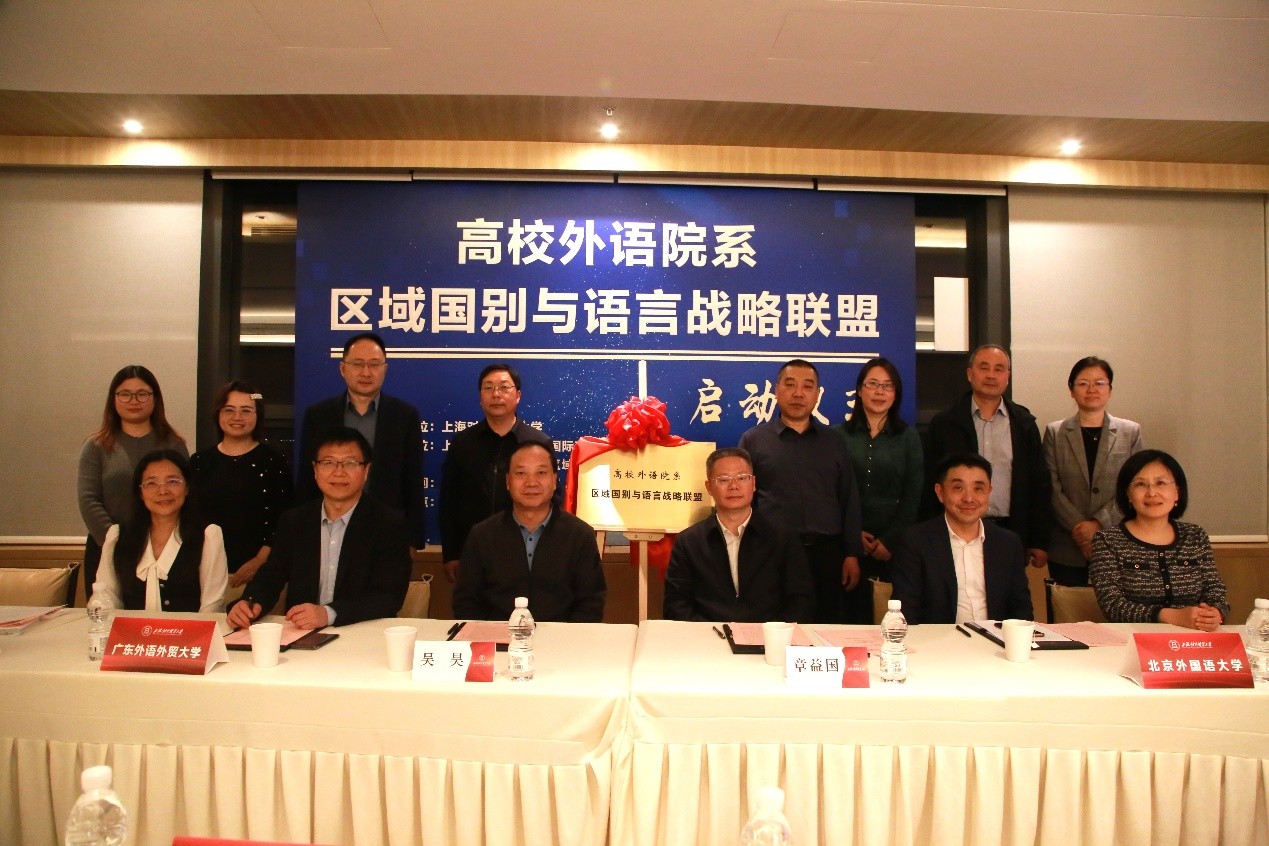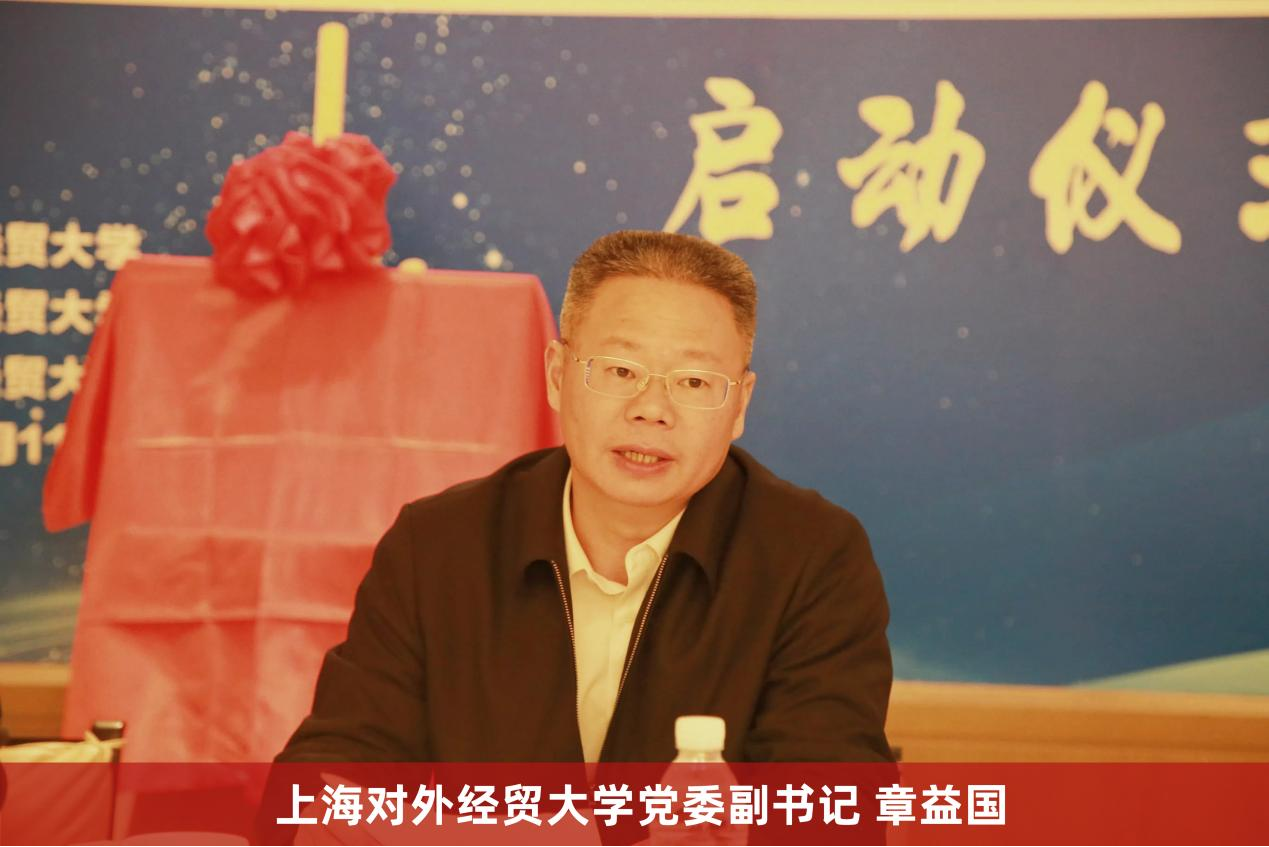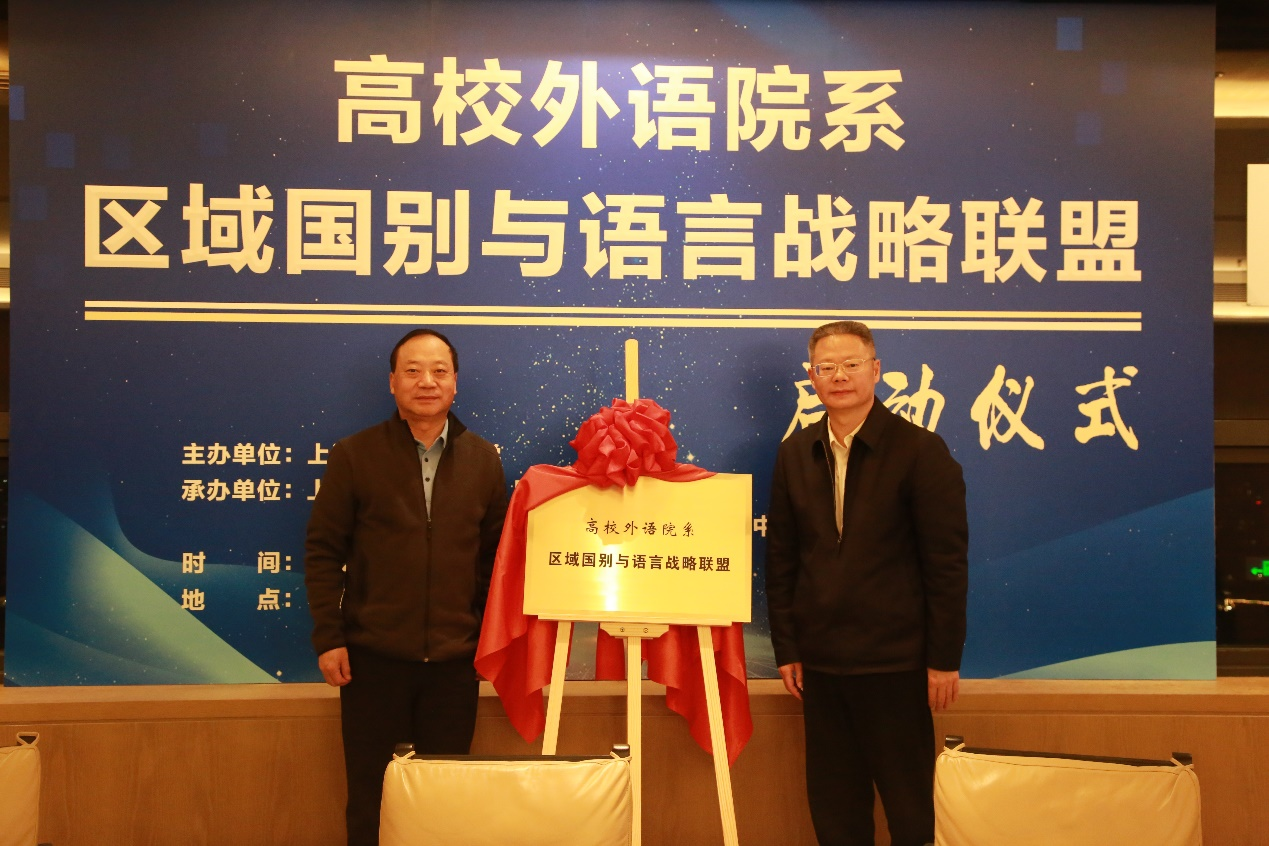The Strategic Alliance for Country and Area Studies and Language of Foreign Language Schools was founded at SUIBE on April 11th, and held its first council meeting on Songjiang Campus.

Zhang Yiguo, Vice Chairman of SUIBE Council, stated that SUIBE’s disciplines, including Foreign Languages and Literature, Economics, Law, and Political Science, will develop Country and Area Studies through interdisciplinary integration and innovation. He said the SUIBE School of Languages , as the primary initiator of the Alliance, will bring into full play its foreign languages advantages to promote the interdisciplinary integration between foreign languages and country and area studies, so as to achieve greater academic and societal significance in the new era.

Zhang Weilei, Dean of the School of Languages, introduced the background and significance of the Alliance, emphasizing that foreign languages discipline provides linguistic and strategic support for the construction of country and area studies. She noted that the Alliance will serve as a platform for exchanges and cooperation in country and area studies across universities. The Alliance aims to enhance the practical impact of foreign languages discipline in serving national strategies through forms such as joint research and faculty exchanges, thereby empowering global governance and high-quality development of China’s international cooperation, she said.

The co-initiating institutions of the Alliance shared their respective progress in country and area studies, and offered suggestions on the future development of the Alliance.
In a pivotal moment witnessed by all participants, Zhang Yiguo and Wu Hao, Dean of the Northeast Asian Studies College of Jilin University, jointly unveil the plaque of the Alliance.
Subsequently, Wu Hao presented a letter of appointment to the presiding institution, while Zhang Yiguo issued letters of appointment to each vice-presiding institution.
Translated by Liu Minyue


